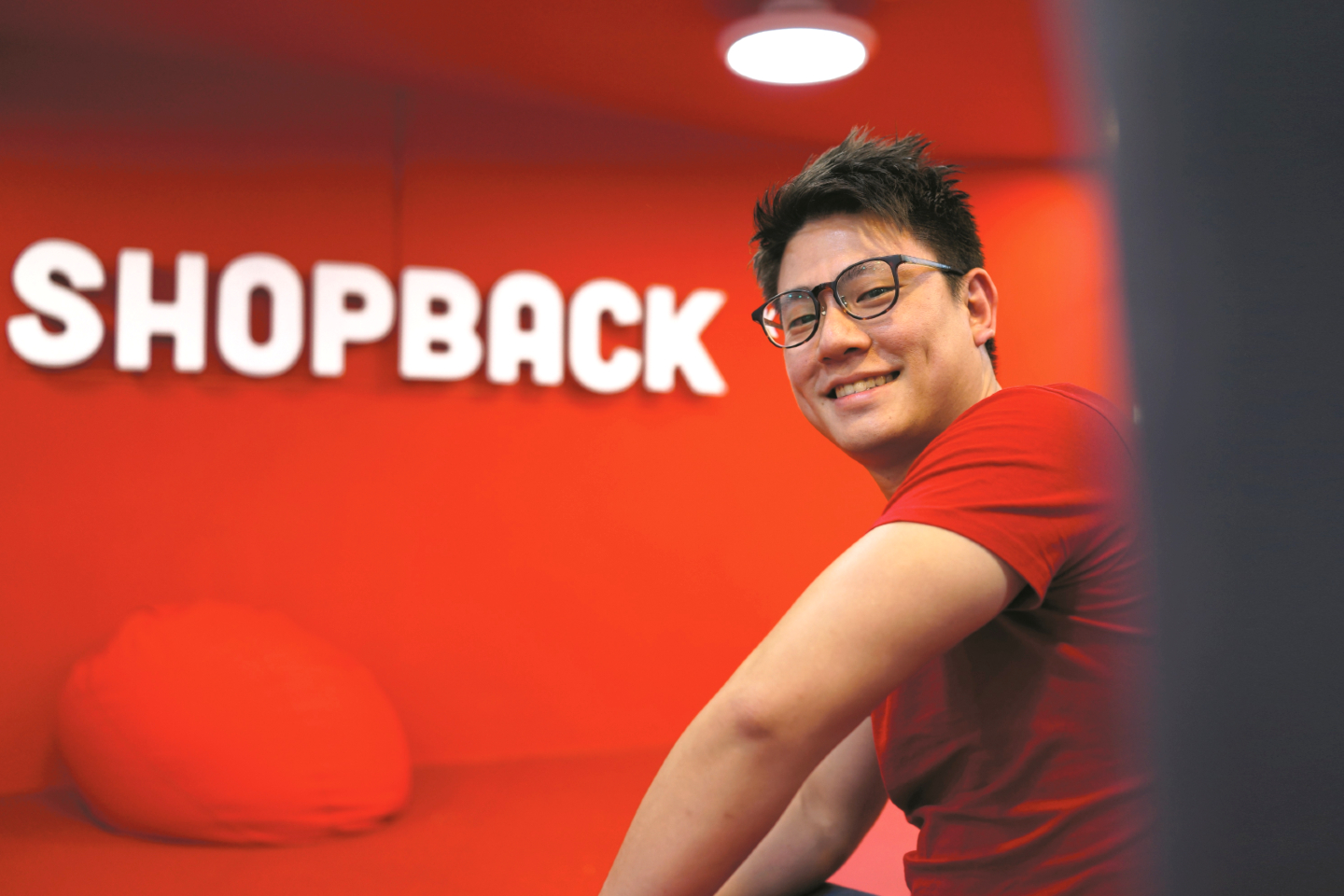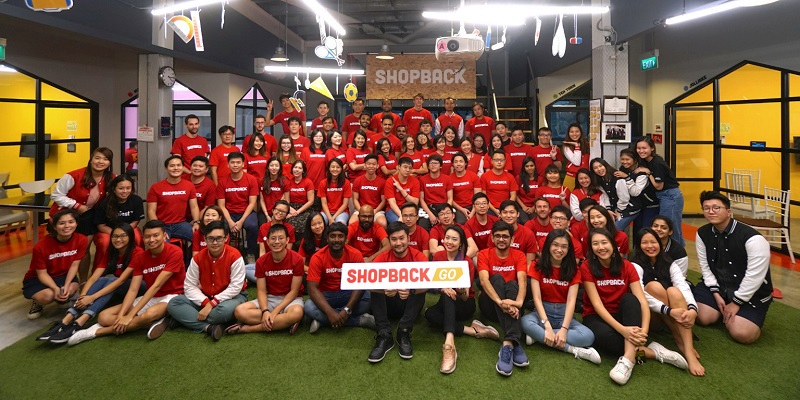
Joel Leong and his partner had noticed the popularity of similar cashback models internationally and established ShopBack in 2014 (All photos: ShopBack)
When I first heard about Singaporean internet start-up ShopBack’s proposition a few years ago — shop online and be rewarded with cash, no strings attached — I was understandably apprehensive. Convinced there had to be a catch, I worriedly abandoned the account I had set up without actually having used the service as intended.
ShopBack co-founder Joel Leong good-humouredly admits my unease was far from unique, as one of the major challenges in the company’s early years was explaining how things worked and convincing customers of its legitimacy. “A lot of people were suspicious because they didn’t get how ShopBack worked but once they did, it made perfect sense.”
Today, ShopBack is positioned as a pre-shopping app even if the cashback element remains unchanged. Essentially, merchants pay Leong’s team to get customers to their website in the right frame of mind to spend money — the promise of getting some cash back on a purchase they are already tempted to make, in this case — and that is how the transaction is completed. Founded in 2014, ShopBack completely disrupted the traditional models of advertising that were then making Google and Facebook kings — it offered better results with lower costs and has since become an e-commerce sensation with offices in several Southeast Asian nations. ShopBack operates on a shared commission basis — whatever they earn from merchants for securing a sale, a major percentage goes to customers.
henry-chan-shopback.jpg

Leong and co-founder Henry Chan, who met when they worked together at fashion e-tailer Zalora, had noticed the popularity of similar cashback models internationally — Ebates in the US, which eventually became Rakuten Rewards, and Fanli in China. What worked for the goose would logically work for the gander, so the duo established ShopBack in 2014, backed by the invaluable insights they had gained from their time at Zalora.
“In the e-commerce space, merchants always want to diversify their online marketing spend, which is understandable. We are always able to offer better rates than Google or Facebook because we charge on a cost-per-sale model. With Google, for example, you get charged per click even if there isn’t a resulting sale. With ShopBack, it is risk-free for merchants, which is why they were initially so happy to get on board,” Leong says.
This is not to say that ShopBack was an instant success, though — merchants signed on because they bore no risks, but retaining them meant getting customers to actually make purchases.
“The hardest part is telling customers that you get free money, okay,” Leong laughs. “Straightaway, they asked, ‘What is the catch?’. We started small, with people we knew — sometimes, nothing more than 10 orders a day. We soon learnt that as long as people get to withdraw their cash, they will tell others about ShopBack — how credible we are and how it’s true that you do get money back when you spend. And crucially, that there is no catch.”
The learning curve for Leong and his team was steep, beginning with who their customers would be. Although they assumed it would be students, it quickly emerged that young people on meagre allowances granted by their parents do not good customers make. But on the other end of the spectrum, big spenders with matching budgets did not care about making small financial gains on the side of their internet shopping bills either.
The correct answer was a surprise to them all. “Mothers,” Leong states. “Mothers are very price-conscious, as well as young professionals, who also tend to be careful about how they spend. Company administrators and secretaries, who shop on behalf of their bosses or their employers, are also highly represented. Our customer base has grown a lot over the years and we’ve come to find that the mum and housewife demographic is by far our largest.”
Although based in Singapore, ShopBack has become a regional company with offices in each of the markets they operate in. Leong explicitly credits his time with Zalora for his expansionist thinking — in charge of managing regional partnerships for the retail giant, he realised that while Singapore is a good place to start, getting into all of Southeast Asia should be the target. Today, ShopBack empowers online purchases in seven categories — travel, dining, health and beauty, fashion, home and living, groceries and electronics — for buyers and merchants in Malaysia, the Philippines, Indonesia, Taiwan, Thailand and Australia. To date, it has returned more than US$70 million in cashback payments to 13 million customers.
shopback.jpg

For this to happen, ShopBack has had to be incredibly nimble, responding to the rapidly changing tech scene with agility. “If you look at the app and website, it used to be hideous — I am glad to say that that has changed, and for the better,” Leong quips. “The product itself is also more streamlined. Customer experience is key and I think that has continually improved. We have also grown our bank of merchants, which includes a wide range of companies across several categories. As we’ve made more money, we’re also able to work with more partners to market ourselves.”
Leong and his team are gearing for a busy 2020, with plans in place to develop the product as well as its market. “There needs to be new USPs (unique selling points) so people don’t just come to us for the cashback, but other shopping needs. The US$2 billion sales we have clocked up is purely through cashback, but to achieve the next US$2 billion, we are going to have to work with other USPs. And then there is our continued expansion — Vietnam will happen in the first quarter of the year, although we believe the model can work in so many other markets too.”
“Money for nothing”, once sang Dire Straits frontman Mark Knopfler, and while ShopBack is not making that promise, the prospect of getting small returns on purchases we were already planning to make does not seem like a bad idea at all. Knopfler would be impressed — we certainly are.
This article first appeared on Jan 13, 2020 in The Edge Malaysia.


